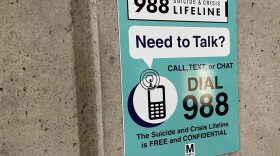-
American Lung Association warns that air pollution is worsening as EPA looks to rollback regulations.
-
Experts say the moderate gains in maternal mental health could be impacted by proposed cuts to Medicaid at the federal level.
-
Experts worry about the impact of cuts to Medicaid and public health on maternal and infant health.
-
Do vaccines cause autism? Can your child get multiple vaccines at the same time? And why do you need to vaccinate your child against disease that are no longer around?
-
988 has gotten roughly 10 million calls in the last two years. U.S. officials want to to raise awareness about the service
-
Patients and their caregivers are often left to navigate the confusing world of dementia by themselves, but Medicare is launching a new program to change that.
-
Thirteen states across the U.S., including much of the Midwest, introduced bills this year that could give some rights to embryos and fetuses usually associated with people. None passed but people in the fertility world are concerned that lawmakers will try again and what that means for reproductive rights.
-
A new survey from the American Academy of Sleep Medicine found that more than three-fourths of Americans lose sleep because of digital distractions.
-
Survivors of nonfatal shootings do not always seek professional mental health help despite trauma, according to a new study. Stigma and fear of getting in trouble are some of the reasons why.
-
Considering the country’s divided Congress, Americans shouldn’t hold their breath for major health reform legislation this year. On the other hand, 2023 is shaping up to see some incredibly consequential health policy changes that could impact millions.
Play Live Radio
Next Up:
0:00
0:00
Available On Air Stations











